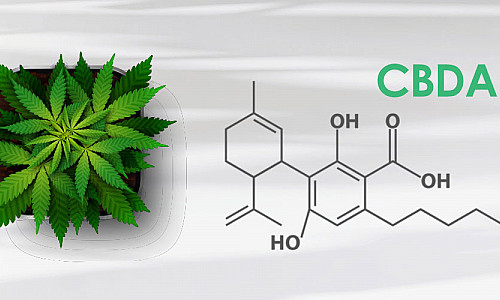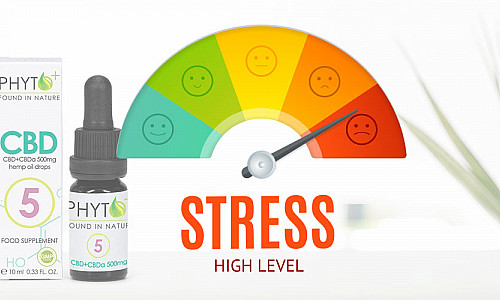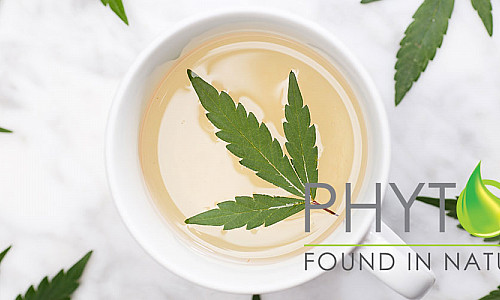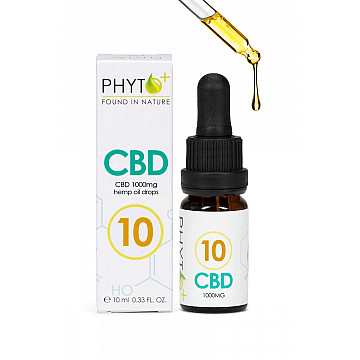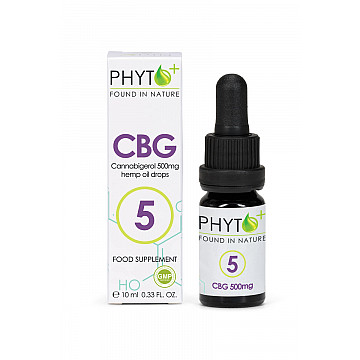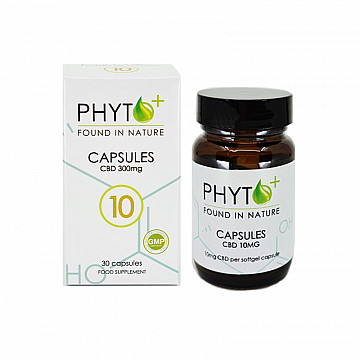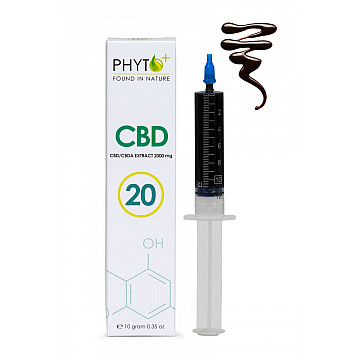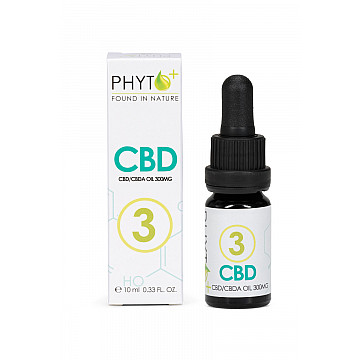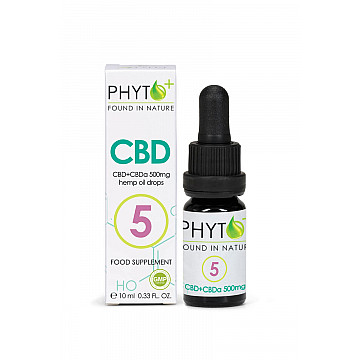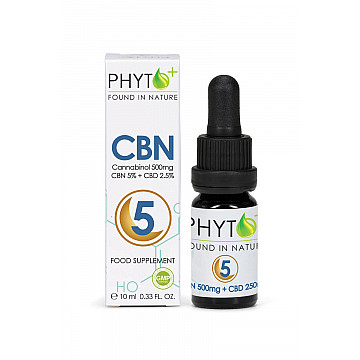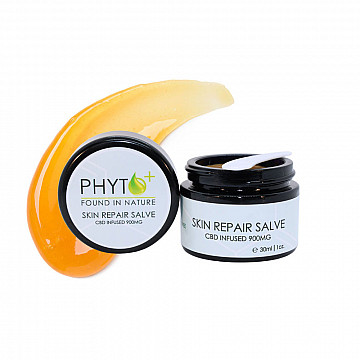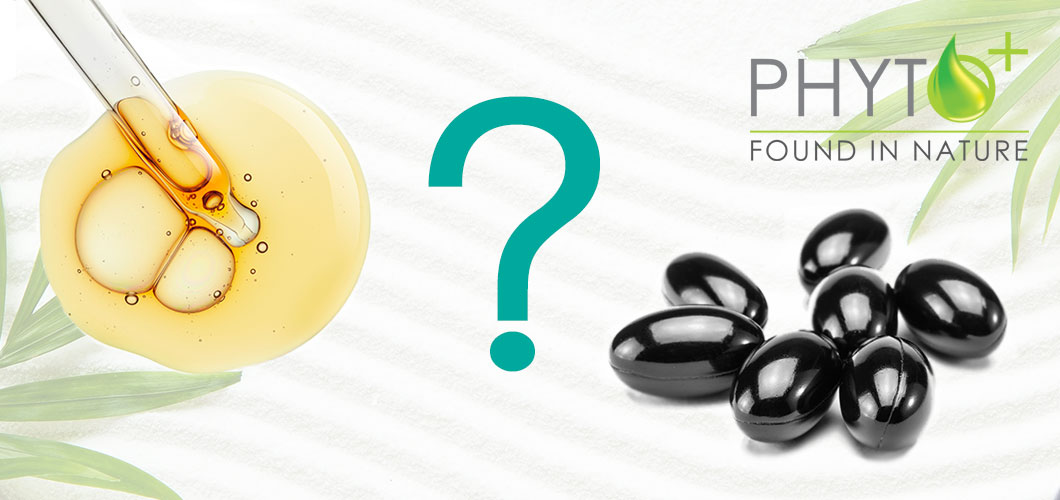
Cannabidiol, commonly known as CBD, has gained popularity in recent years due to its potential health benefits. CBD is one of the many cannabinoids found in the cannabis plant, and it is believed to have various therapeutic properties without the psychoactive effects associated with tetrahydrocannabinol (THC), another well-known cannabinoid. CBD is available in various forms, with CBD oil and CBD capsules being two popular options. In this article, we will explore the differences between CBD oil and CBD capsules to help you make an informed decision on which form may be suitable for you.
CBD Oil: Versatile and Fast-Acting
CBD oil is made by extracting CBD using various methods, such as CO₂ extraction or solvent extraction, and then diluting it with a carrier oil. Common carrier oils used in CBD oil include coconut oil, hemp seed oil, olive oil, or MCT (medium-chain triglyceride) oil. CBD oil is usually sold in small 10ml bottles with a dropper for easy administration. One of the main advantages of CBD oil is its versatility. It can be taken orally by placing a few drops under the tongue, mixed with food or beverages, or even used topically on the skin for localized effects such as pain relief or skin conditions.
One of the reasons why CBD oil is popular is because of its fast-acting nature. When taken sublingually (under the tongue), CBD oil can be directly absorbed into the bloodstream through the small blood vessels in the mouth, bypassing the digestive system and liver. This results in a quicker onset of effects, usually within 15-30 minutes, making it a preferred choice for those seeking immediate relief from symptoms such as anxiety or pain.
Another advantage of CBD oil is that it allows for flexible dosing. CBD oil allows for customized dosing as the dropper allows for precise measurement of the desired amount of CBD. This makes it easy to adjust the dosage to individual needs or preferences. CBD oil is available in various strengths and formulations, allowing users to choose the right concentration for their specific needs.
CBD Capsules: Easy and Discreet
CBD capsules, on the other hand, are pre-measured capsules containing pure CBD extract. They are taken orally, just like any other dietary supplement or medication. CBD capsules are usually made with a gelatin or vegetarian capsule shell, and they are available in different strengths and compositions, so you can choose the right dosage for your needs.
At Phyto Plus®, we exclusively use 100% vegan capsule shells so that everyone can benefit from the unique properties of CBD.
One of the main advantages of CBD capsules is their convenience. Each capsule contains a predetermined amount of CBD, eliminating the need for measuring or dosing. This makes them ideal for those who prefer a hassle-free option or are always on the go. CBD capsules can easily be incorporated into your daily routine, just like any other vitamin or supplement, and they are also discreet, making them a suitable option for those who may not want to draw attention to their use of CBD.
CBD capsules also have a longer shelf life compared to CBD oil. As they are encapsulated, they are less exposed to air and light, which can degrade the quality of CBD over time. This means that CBD capsules may have a longer shelf life and remain potent for longer compared to CBD oil.
Choosing Between CBD Oil and CBD Capsules
When choosing between CBD oil and CBD capsules, there are several factors to consider based on your personal preferences and needs. Here are some points to keep in mind:
- Effective action: If you are looking for quick relief and faster action, CBD oil may be a better option as it is absorbed directly into the bloodstream and can have an effect within minutes.
- Adjustable dosage: If you need an adjustable dosing schedule, CBD oil may be preferred as it allows for precise measurement and easy adjustment of the dosage.
- Convenience: If you prefer a convenient and hassle-free option, CBD capsules may be a better fit as they contain pre-measured doses and can easily be incorporated into your daily routine.
- Discretion: If discretion is important to you, CBD capsules may be a more suitable option as they are easy to carry and can be taken discreetly without drawing attention.
- Lifestyle and preferences: Consider your lifestyle and personal preferences when choosing between CBD oil and CBD capsules. For example, if you appreciate the taste of CBD oil or prefer the versatility of topical use, CBD oil may be your preferred choice. On the other hand, if you prefer the ease of taking a tasteless capsule, CBD capsules may be more attractive.
- Other ingredients: CBD oil may contain additional ingredients such as carrier oils, fillers, or flavorings, depending on the brand and formulation. If you have specific dietary requirements or preferences, it is important to check the ingredients list of CBD oil to ensure they align with your needs.
- Budget: Consider your budget when choosing between CBD oil and CBD capsules. CBD oil may be more cost-effective in terms of price per milligram (mg) of CBD, as it allows for precise dosing, while CBD capsules may be more expensive due to the convenience of pre-measured doses.
Does CBD Oil work differently than CBD Capsules?
CBD oil and CBD capsules contain the same active ingredient, cannabidiol (CBD), and both are used to interact with the body's endocannabinoid system (ECS). However, they differ in their forms, methods of consumption, and how they are absorbed in the body, which can result in some differences in how they work.
Form:
CBD oil is the liquid form of CBD that is typically made by extracting CBD from the cannabis plant and diluting it with a carrier oil. It is usually sold in small bottles with a dropper for sublingual (under the tongue) or oral consumption. On the other hand, CBD capsules are pre-measured capsules containing CBD oil, which are taken orally like any other dietary supplement or medication.
Method of consumption:
CBD oil can be taken sublingually, where it is absorbed by the small blood vessels under the tongue and quickly enters the bloodstream, bypassing the digestive system and liver metabolism. This can result in faster onset of effects compared to other oral methods. CBD oil can also be mixed with food or beverage, or used topically on the skin. CBD capsules, on the other hand, are taken orally and pass through the digestive system before being absorbed into the bloodstream. This can result in slightly slower onset of effects compared to sublingual CBD oil.
Absorption:
Due to the differences in methods of consumption, CBD oil and CBD capsules may have different absorption rates and bioavailability. Bioavailability refers to the amount of a substance that is absorbed into the bloodstream and available for the body to use. CBD oil taken sublingually (under the tongue) has higher bioavailability compared to CBD capsules taken orally, as it bypasses the digestive system and liver metabolism. CBD capsules have to go through the digestive system, where some of the CBD may be broken down by the liver before it enters the bloodstream. However, CBD capsules may have a longer duration of action compared to CBD oil, as they are slowly released in the digestive tract.
Dosage:
CBD oil allows for more customizable dosing, as the dropper allows for precise measurement of the desired amount of CBD. Users can easily adjust the dosage to their individual needs or preferences. CBD capsules, on the other hand, come in pre-measured doses, which can be convenient for those who want a standardized dosage without having to measure.
Convenience:
CBD capsules are generally considered more convenient and discreet compared to CBD oil. CBD capsules are pre-measured, easy to carry, and can be taken without drawing attention, making them suitable for on-the-go use or for those who prefer a more discreet method of consumption. CBD oil, on the other hand, may require additional equipment, such as a dropper, and may not be as discreet for public use.
How do I choose the right concentration of CBD Oil or Capsules?
The choice of concentration of CBD oil or capsules depends on various factors, including the desired effects, tolerance level, and intended use. Here are some general guidelines that can help you choose the right concentration of CBD oil or capsules:
- Start low and slow: If you are new to CBD, it is recommended to start with a lower concentration and gradually increase it if needed. This allows you to assess your body's reaction to CBD and find the optimal dosage for your specific needs.
- Consider the goal: The concentration of CBD oil you choose may vary depending on the intended use. For example, if you are using CBD for general well-being or mild symptoms, a lower concentration (e.g. Phyto Plus® CBD oil 3% or CBD oil 5% per 10ml bottle) may be sufficient. For more severe symptoms or specific conditions, a higher concentration (e.g. Phyto Plus® CBD oil 10% or higher per 10ml bottle) may be more appropriate.
- Take into account your body weight and tolerance: Body weight and individual tolerance can also affect the right concentration of CBD oil. Higher body weight may require a higher concentration of CBD to achieve the desired effects, while individuals with lower tolerance may benefit from lower concentrations.
- Consult the CBD supplier: It is always recommended to consult a healthcare provider, especially if you have existing health issues or are taking medications. The CBD supplier or store salesperson can provide personalized recommendations based on your individual health profile and help you determine the right concentration of CBD oil for your needs.
- Experiment and adjust: Finding the right concentration of CBD oil may require some trial and error. It is important to pay attention to how your body reacts to different concentrations and adjust accordingly. Start with a lower concentration, gradually increase if needed, and monitor your body's response.
- Check the product label: CBD oil products usually indicate the CBD concentration per serving or per bottle on the label. Always purchase CBD oil products from a reputable brand. Be sure to read and follow the instructions and dosage recommendations of the product for the specific concentration you have chosen.
Remember that CBD can have different effects on different individuals, and there is no one-size-fits-all approach to determining the right concentration. It is important to listen to your body, start with a lower concentration, and adjust if needed under the guidance of a healthcare provider."
In conclusion:
Both CBD oil and capsules have their pros and cons, and the choice between the two largely depends on your individual preferences, needs, and lifestyle. CBD oil offers versatility, faster effects, and customizable dosages, while CBD capsules provide convenience, discretion, and longer shelf life. It's important to carefully weigh your priorities and consider consulting with your healthcare provider before incorporating CBD into your wellness routine. Regardless of the form you choose, it is crucial to purchase high-quality CBD products from a reliable source to ensure their safety and effectiveness.


